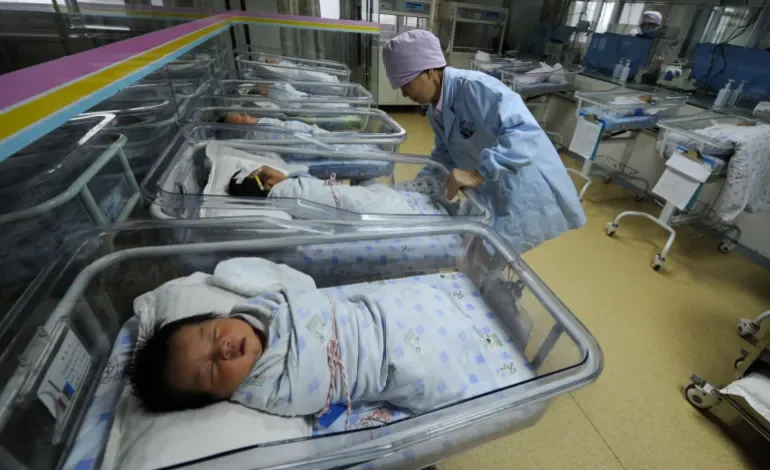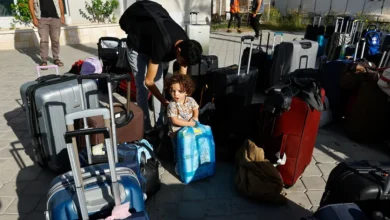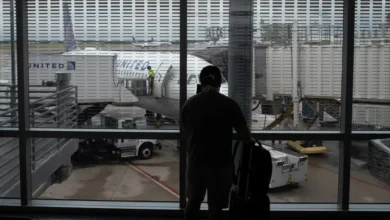‘Obstetric winter’: Why are China’s hospitals shutting delivery wards?

Medical experts and Chinese media are reporting on the closure of obstetric departments across this country of 1.4 billion people, which has suffered a population decline for two consecutive years – China’s first experience of a diminishing birthrate in several decades.
The closures of delivery wards has been likened to an “obstetric winter” in China, while public concern around the shutdowns has prompted authorities to remove search topics related to the issue from Chinese social media.
Fewer Chinese women are having children
China’s National Bureau of Statistics announced in February that the country’s population fell for a second year in a row in 2023 – dropping by 2.08 million to 1.409 bn.
Last year’s decline was far more than the decline recorded in 2022 of 850,000, which marked the first time China’s population had reduced since 1961 – the year of the Great Famine under the leadership of Mao Zedong.
Figures for 2023 also showed that new births fell 5.7 percent – to 9.02 million – and the country’s birthrate also hit a new low of 6.39 births per 1,000 people, down from 2022’s rate of 6.77 births per 1,000.
The birthrate in China has been falling since the imposition of a strict one-child policy for families in 1980 amid fears of a rapidly rising population. Amid an equally sharp fall in population, the Chinese government changed course in 2015, allowing couples to have two children, then three children in 2021.
But allowing couples to have more children has not resulted in more choosing to do so.
Several explanations have been given for why Chinese people appear unwilling to have more children, including: The effectiveness of decades of government messaging around the benefits of limiting family size to one child. The economic costs associated with having children in China – childcare, education, healthcare – and the effects on the careers of young people from having families.
How many hospitals have closed obstetric departments?
China has not published official figures on the reported closures.
The Reuters news agency reported this week that “many hospitals in China” had stopped offering obstetric services this year.
Data from China’s National Health Commission shows the phenomenon is not sudden. Between 2020 and 2021, the number of maternity hospitals fell from 807 to 793, according to Reuters.
“The ‘obstetric winter’ seems to be coming quietly”, China’s Daily Economic News media outlets reported last week. But, alarm bells have been sounding for longer than that among Chinese medical experts and media reports.
According to Gietel-Basten, young women in China face myriad risks to their career and economic wellbeing from having a family, not to mention an “uneven burden of care” in the home as women are expected to look after children, parents and parents-in-law.
“The costs for women in terms of the economic risk, but also the risk to having the kind of life that they want, and would expect to have, is very, very great,” he said.
Chinese attitudes to marriage and children
The number of people getting married in China fell from approximately 13.5 million couples annually in 2013 to approximately 6.8 million in 2022.
Data indicates that Chinese people are also getting married later, divorce rates are rising, and the number of people choosing to remain single is growing.
Agnes Chen, 34, a business owner in Shanghai, told Al Jazeera she was not surprised that obstetric departments are scaling back across China.
“Now is not a good time to have a kid. The economy is not good, and a lot of young people are struggling and have other priorities,” she said. “Even the couples I know that want to have a kid are waiting for better times instead.”
Lisa Ming, 28, a nurse anaesthetist in Shenzhen, said she had often discussed starting a family with her husband after they married last year.
“But we don’t have a lot of money right now so we have decided to wait and see what happens, and what we want in the future,” she told Al Jazeera.
“We would have to work a lot more to provide for a baby, and we don’t want more stress and pressure right now. Life is not just about starting a family, quality of life is also important,” she said.











